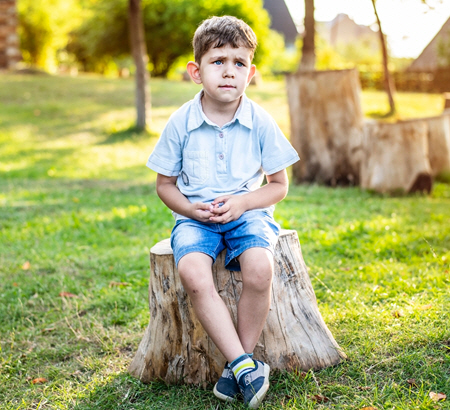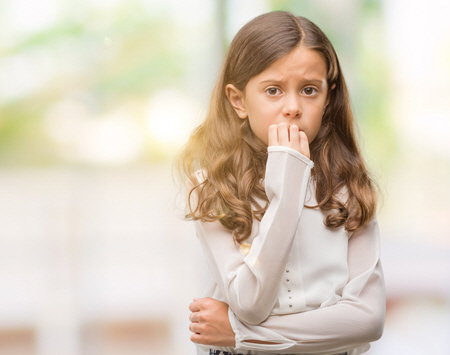 It’s supposed to be a carefree time…
It’s supposed to be a carefree time…
…a time of innocence filled with play, ease, and joy.
But this might not be the case with your child.
Are they acting out aggressively… hitting, crying, or screaming multiple times a day? Are they irritable and short-tempered?
Have you seen changes in their eating, becoming pickier, less hungry, or sharing that their stomach and head are hurting more often?
Is their sleep disrupted by nightmares… or are they not wanting to fall asleep?
Maybe they’ve regressed in some area of development – for example, having frequent accidents after being potty-trained.
Perhaps they’re clinging to you more than ever, crying when you so much as go to the bathroom, because they don’t want to separate from you.
Do they fear going to new places or meeting new people… as though they’ve retreated into a shell?
Feel impossible to keep them focused and on task?
It’s understandable why they’ve changed.
That’s what children do when they experience trauma. And, unfortunately, there are many sources of it.
Witnessing physical and emotional violence…
Losing a pet…
Going through the death of a family member…
Experiencing a car accident…
Coping with the social changes due to a pandemic…
Adjusting to family changes, like parents going back to work, divorcing, or remarrying…
…even going to a new school can be traumatic for a child.
What they went through is not your fault.
A part of you can’t help but feel guilty for feeling like you failed in protecting them from harm – one of your main goals as the loving parent you are.
You feel anger for the fact that this even happened to them, sad for realizing how much this has hurt your child, and overall stressed in trying to deal with it all.
I know you’re willing to do whatever you can to help them.
Because even though you’ve heard that “kids don’t even notice” or “pay attention to these kinds of things” … that they’ll “just grow out of it” …
You know that’s not really true.
“I’ll try to ignore it all together, maybe if we just talk about other things, they will be distracted and will forget about it and things will be back to normal.”
You’ve bought them things… “If I get them whatever they ask for, how can they possibly feel like anything is missing. They will know they are loved and will move past it.”
You’ve taken them out to fun places, hoping they would be filled with fun, positive memories and be kept busy. Then you think they’ll move past it and be back to normal.
Sometimes, these measures do help; but they are like a band-aid – relief is only short-term, and they do not get to the root of the problem.
 Therapy helps children heal from trauma.
Therapy helps children heal from trauma.
Because a young child’s communication is not yet fully developed, their therapy looks different from that of an adult.
Because you, the parent – the most important person to your child and can help them heal and have lasting change – will be the one to learn the play therapy skills to help your child heal.
Sessions will take place in the comfort of your own home. This helps build a client’s sense of safety in their most natural setting.
Through live coaching and role play, you’ll learn specific play therapy tools to help your child feel safe again.
Several tools you will learn are based on the principle of child-directed interaction. This means that during the play, the child gets to lead and chooses what and how they want to play.
A child is used to not having much control of their life…
…given they have no control over where they live, where they go to school, what they get to do in a day. Especially when children have experienced trauma, they experience a loss of control, often leading to feelings of insecurity and lack of safety.
By having a therapeutic space where the child leads, they get to play out their trauma which helps them in processing it. They can make sense of their experience and feel in control over the scenarios while their parent is with them, supporting them throughout so they can heal.
You will see a reduction in the behaviors that were a response to the trauma; for example, the nightmares, the aggression, the body aches; they will achieve improvement in the different areas of their life.
Therapy focuses on helping them regain a sense of security in the world.
When children go through trauma, they often lose a sense of safety. Their world has become an unsafe and scary space.
Safety is “built into” therapy, because it takes place in a space of containment, involves consistency and routine, and encourages the child to lead play therapy sessions with a trusted adult responding positively to them.
Your child will acquire tools to help them manage their emotions.
During the sessions, there will be several opportunities to model to your child different emotion regulation tools, like taking deep breaths, like expressing how you feel by verbalizing specific emotions.
By using different characters in the play like puppets, stuffed animals, figurines, and by sharing how they manage difficult scenarios, children learn to manage their own by observing how others can do it.
The benefits for your child will last a lifetime…
By healing from the trauma at their young age, you help in setting the stage for the rest of their life. By overcoming their trauma, they gain strength, resilience, and confidence. These characteristics help them in being able to manage challenges in their future.
 It’s time to heal and get back to a happy childhood.
It’s time to heal and get back to a happy childhood.
Asking for help and having the courage to start this process speaks volumes of you as a parent. Let me help both of you overcome what you went through and start taking steps toward a better future.
Call me today at (213) 915-6372 for a free 20-minute consultation where I can answer any questions and get us moving toward helping your child heal.

